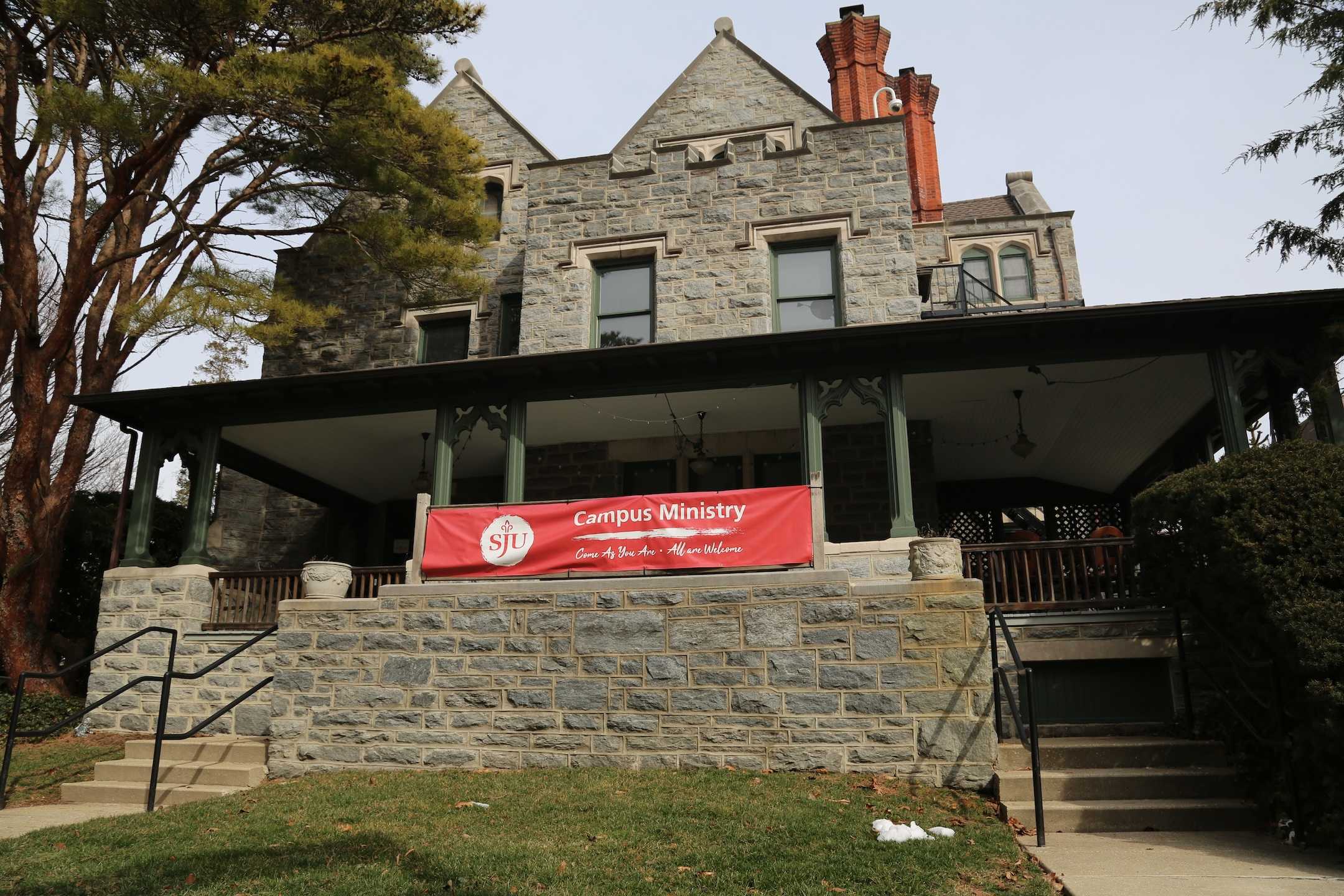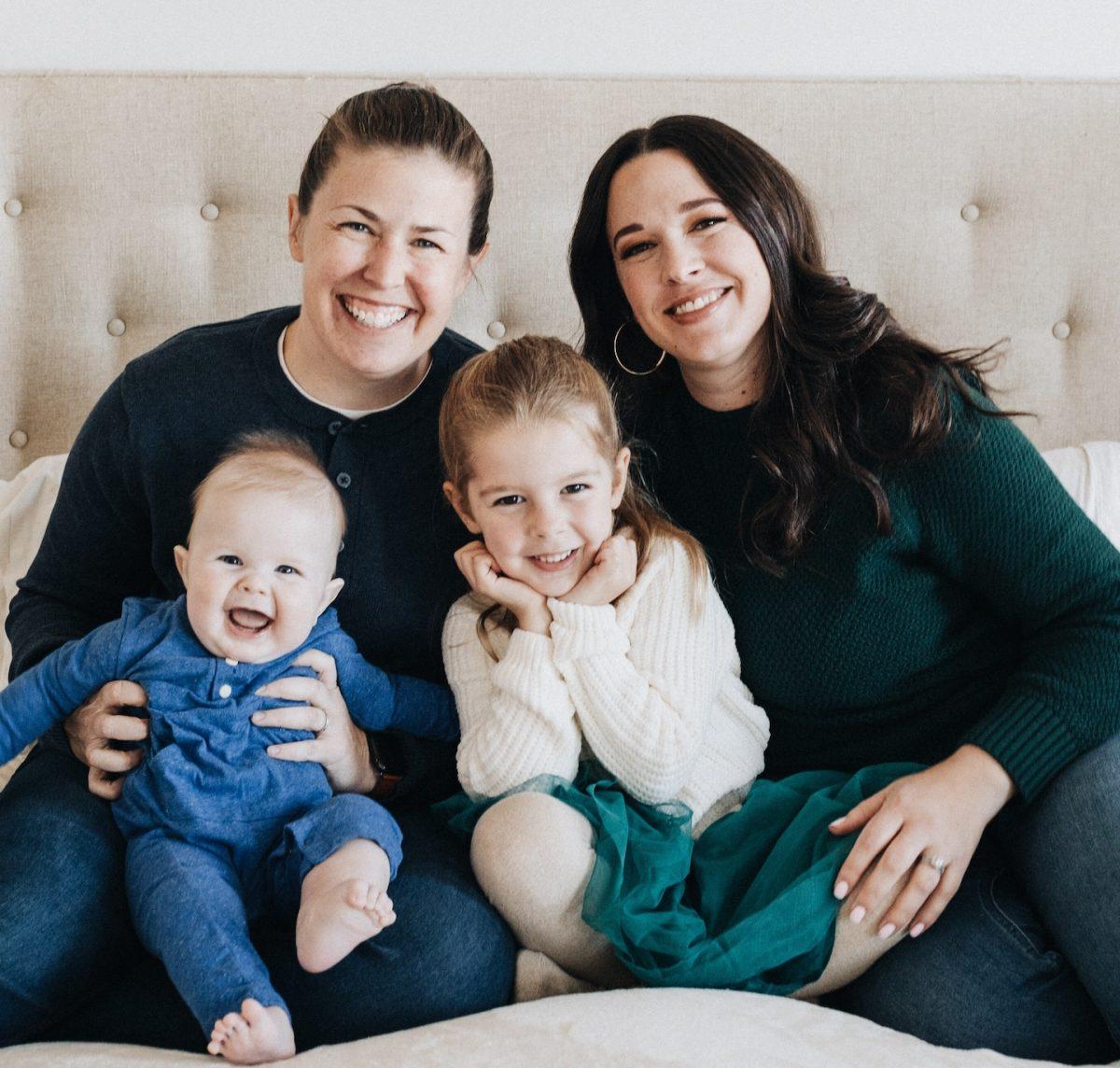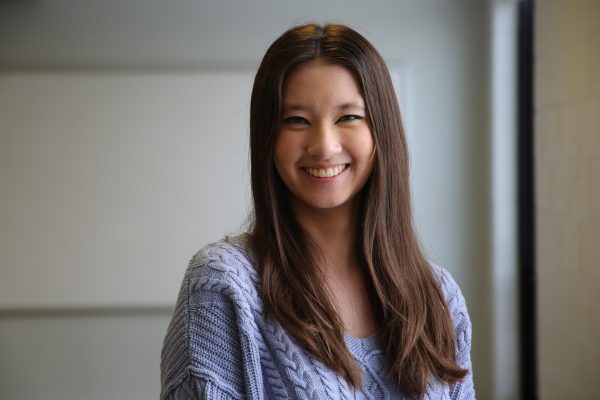While the university’s Feb. 4 Hawkmates Mass was a celebration for some, for others it was a painful reminder of how LGBTQIA+ couples who also met at St. Joe’s are not always included in such events.
At the Mass, couples who met at St. Joe’s and will be married in 2024 were given a couple’s blessing. Then, a broader blessing was given for any heterosexual couples present at the ceremony that included words like “husband” and “wife.”
Elizabeth Linehan, R.S.M., Ph.D., professor emerita of philosophy and member of The Alliance, a volunteer committee of faculty, staff and students dedicated to LGBTQIA+ allyship, attended the Jan. 28 Mass. Linehan said she was disappointed by the language used because, in addition to excluding LGBTQ couples, it appealed to a gender binary.
“I don’t think all younger people today in [our] gender nonbinary, gender nonconforming world, even if they are a boy or girl, a man and a woman, necessarily use those terms,” Linehan said. “They might just [say], ‘my spouse’ or ‘my partner.’”
Discussion of LGBTQ Hawkmates, a nickname for married couples who met at St. Joe’s, is increasingly relevant given Pope Francis’s Dec.18 announcement and St. Joe’s status as a Jesuit university. Francis’ statement formally permitted Catholic priests to bless LGBTQ couples but reinforced that sacramentally valid Catholic marriages must be between men and women.
Caleb Datto ’26, member of “Coming Out, Spiritually,” an affinity Christian life community (CLC) centered around sexuality, gender and Ignatian spirituality, affirmed the complex nature of the Catholic Church’s teachings. Datto said although Catholic priests are now formally permitted to bless LGBTQ couples, they can choose not to.
Datto said he’d like if St. Joe’s made a statement in support of Pope Francis’ announcement.
“There is a little bit of ambiguity because it just makes me think, ‘What would St. Joe’s do in that situation?’” Datto said.

LGBTQ advocacy at St. Joe’s formally started in 2007 when Students for Tolerance, Openness and Pride (STOP), an LGBTQ support group, was formed. Since then, pride organizations, including SJUPride, the current student-run organization for LGBTQ and ally communities, have promoted inclusion on campus.
However, this does not mean St. Joe’s past is void of LGBTQ exclusion. St. Joe’s most public instance of exclusion occurred in 2012 when a LGBTQ couple, Megan MacTurk ’09 and Katie MacTurk ’09, M.S. ’11, entered a Facebook contest titled “How I Met my Hawkmate” run by St. Joe’s Alumni Association. The couple’s names didn’t appear on the ballot, and they were later informed they were not allowed on the ballot because the Catholic Church didn’t recognize same-sex marriage.
Megan MacTurk posted about the couple’s exclusion on Facebook, writing that she “[hoped] that SJU [could] become a more accepting and equal environment for LGBT students and alumni.” The post went viral and received thousands of reactions in the coming days.
“We have great memories from college, we take a lot of pride in being alum,” Megan MacTurk told The Hawk. “And to hear that the college basically [didn’t] think that we’re equal to our heterosexual peers and that our relationship [was] somehow inherently different and not worthy of recognition [was] really heartbreaking. And I wanted to make sure people knew that.”
After their story gained traction, including attention from various news outlets, the couple was added to the ballot and won the contest. A meeting for St. Joe’s LGBTQ inclusion committee, which at the time was called the Gay Straight Alliance, was held to celebrate MacTurk’s engagement. Megan MacTurk described the room as “completely packed.” However, the couple never received an invitation to a Hawkmates Mass.
Ann Green, Ph.D., professor of English and a member of The Alliance that was part of the engagement celebration, said she remembered the incident and the controversy that arose.
“What was surprising about that whole situation was that no one thought that a Hawkmate would be someone other than a straight person or a straight couple,” Green said.
Linehan said homophobic incidents like Katie and Megan MacTurk’s exclusion should prompt St. Joe’s to “be as open and welcoming as [it] possibly can.”
Similarly, Green said it’s St. Joe’s responsibility to “educate people about [the] diversity of experience that makes up humankind,” which includes considering all identities when planning events.
“You have to think about the implications of what you do for the entire community, not just the community that St. Joe’s has often been seen as which is white, straight, male, cisgender [and] able-bodied,” Green said.
To be more inclusive, Datto said St. Joe’s should consult departments and organizations that are knowledgeable about uplifting marginalized groups.
“Good resources for the university to reach out to peer review publications and statements would be the gender studies department, the CID and student affinity organizations,” Datto said. “Because these are the people that really know about the identities that might be being overlooked by some statements.”
Kim Allen-Stuck, Ph.D., assistant vice president of student success and educational support and a facilitator of SafeZone training, a program dedicated to educating the St. Joe’s community on LGBTQ inclusion, said language plays an important role in cultivating a welcoming environment. The importance of language was reinforced by the MacTurks.
“We did not feel like we were being accepted and loved and celebrated,” Megan MacTurk said. [The contest] was supposed to be a celebration of our heterosexual peers [and] our marriage was seen as somehow less than. And it’s not. And it starts with how you describe it.”
Update: This story has been updated to correct the date of the Hawkmates Mass to Feb. 4.
















































